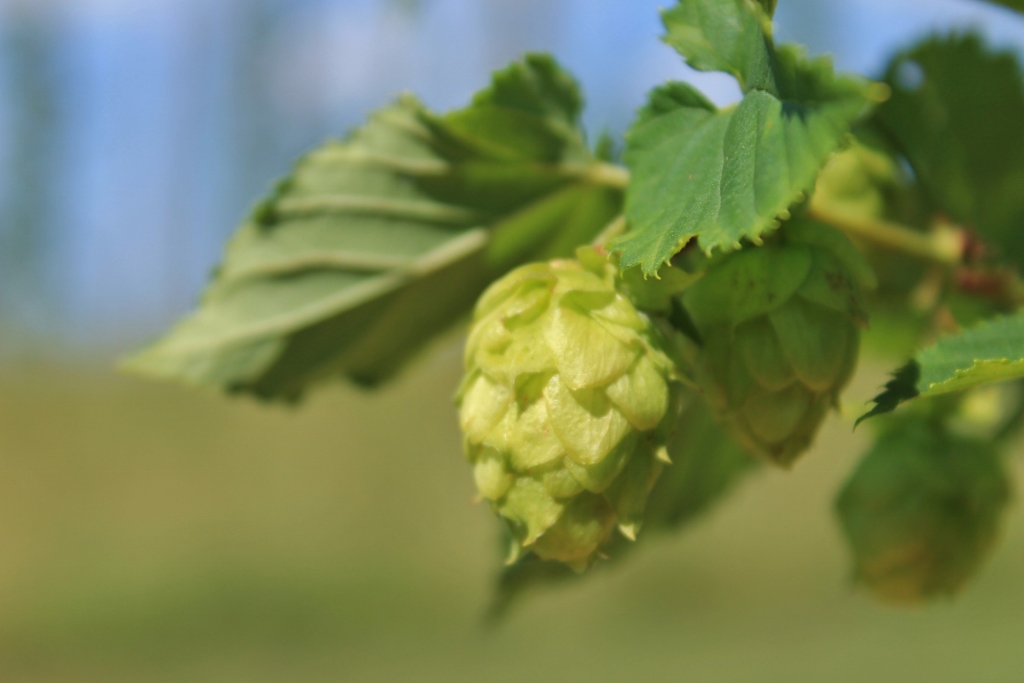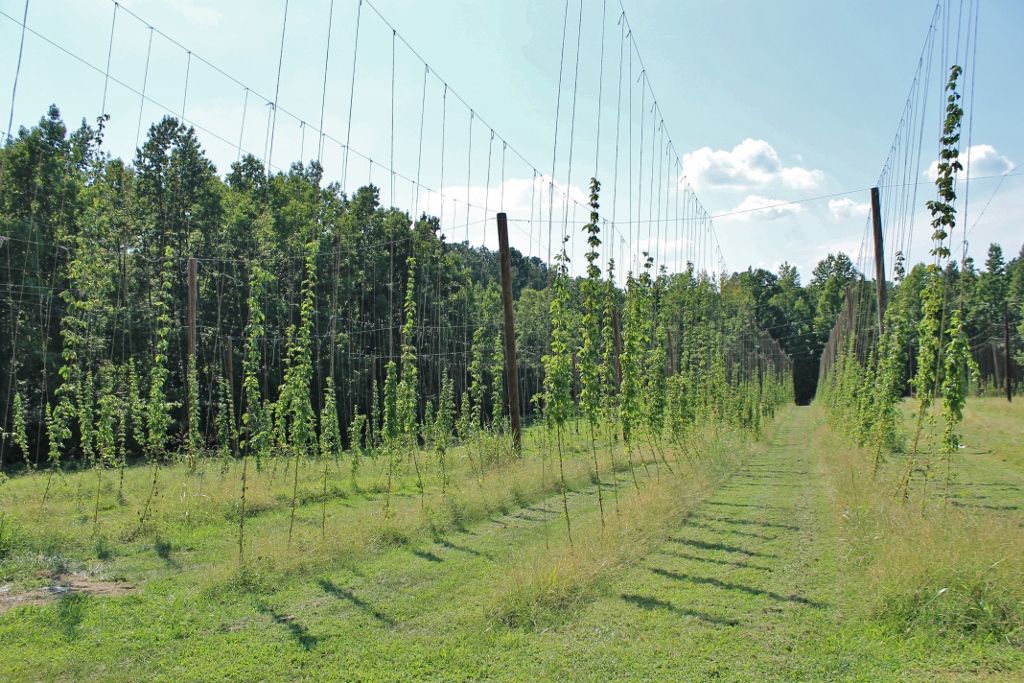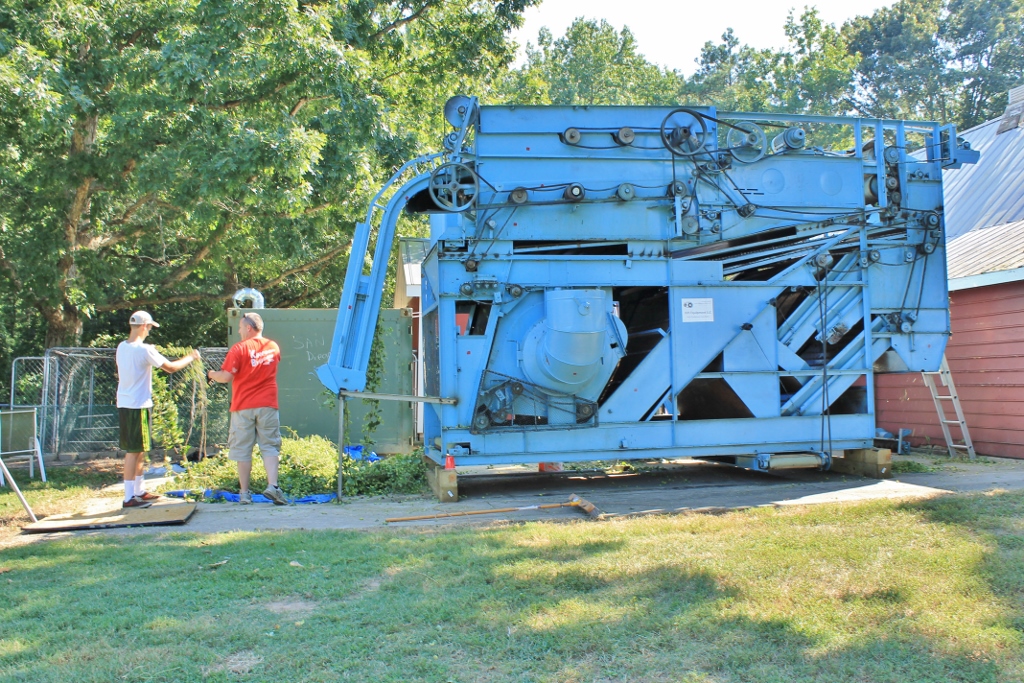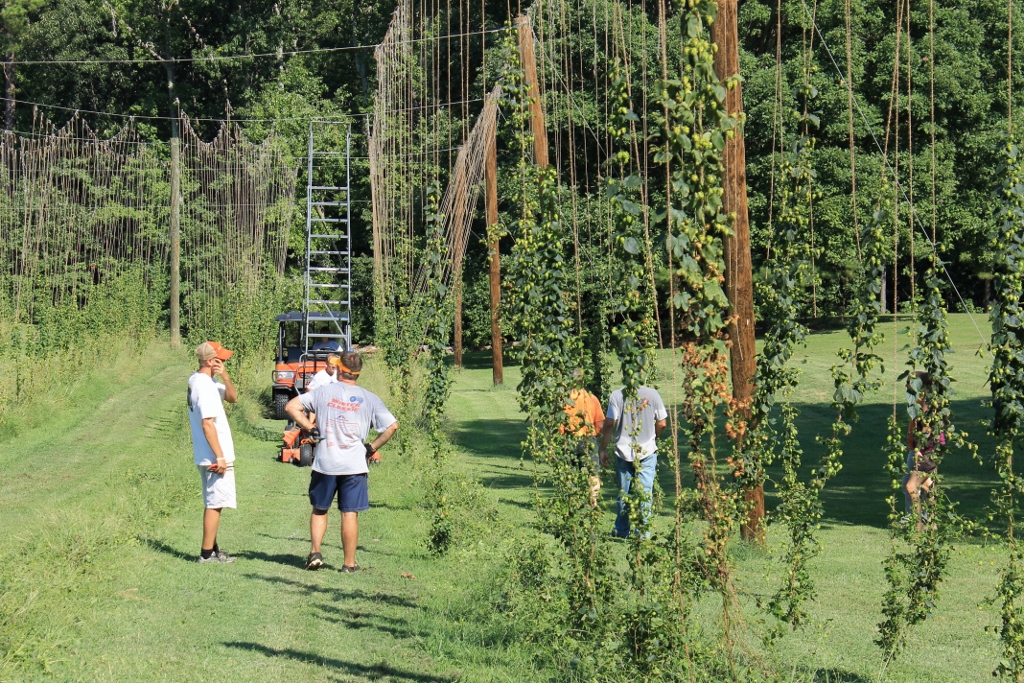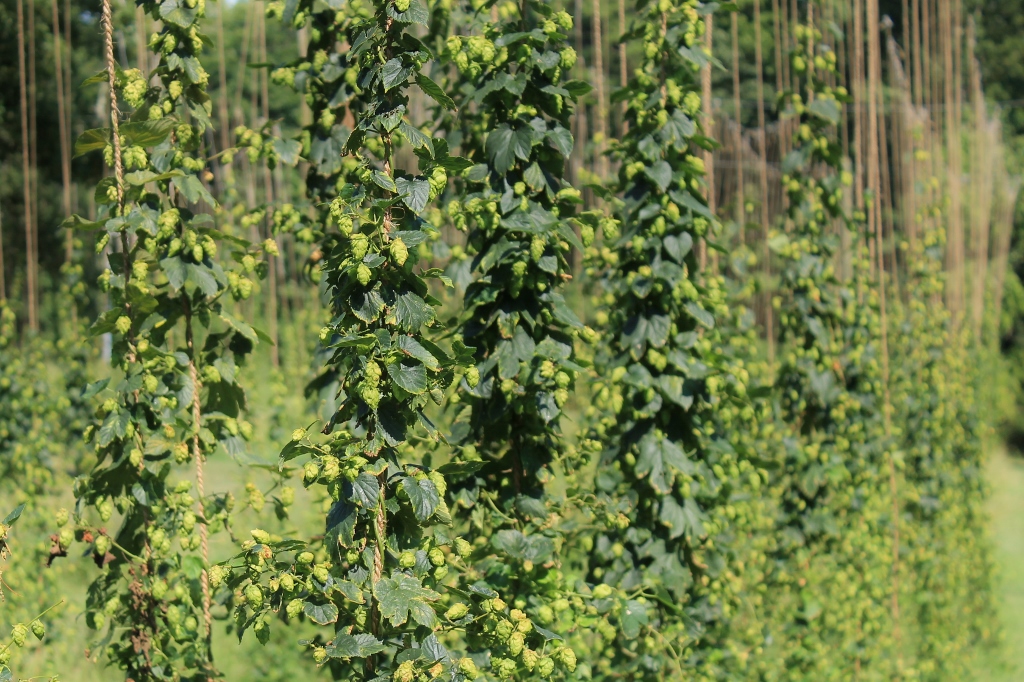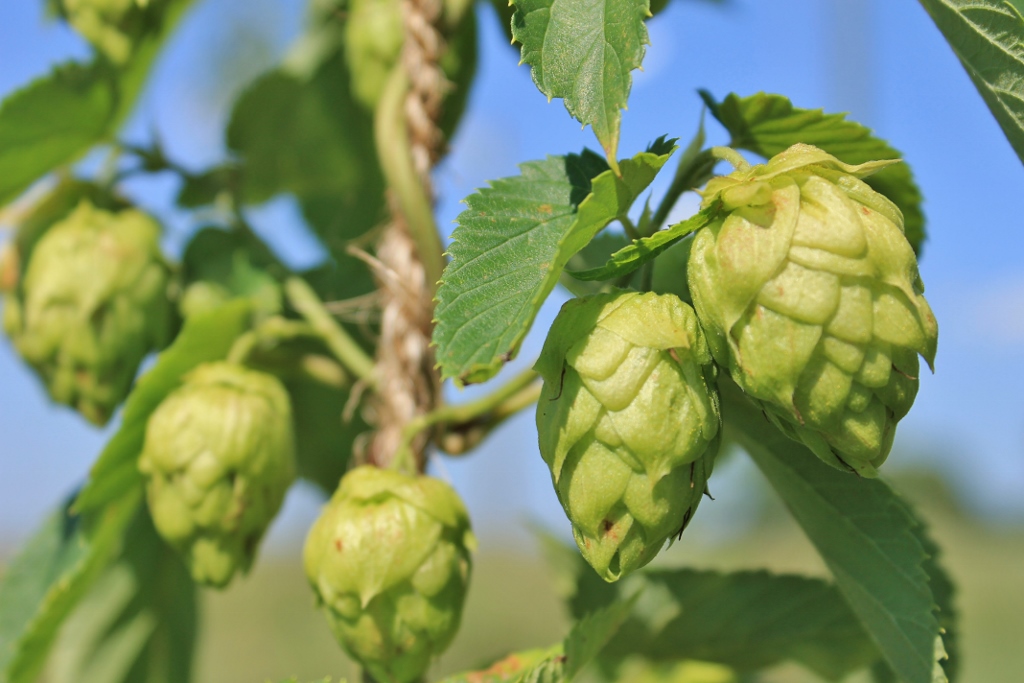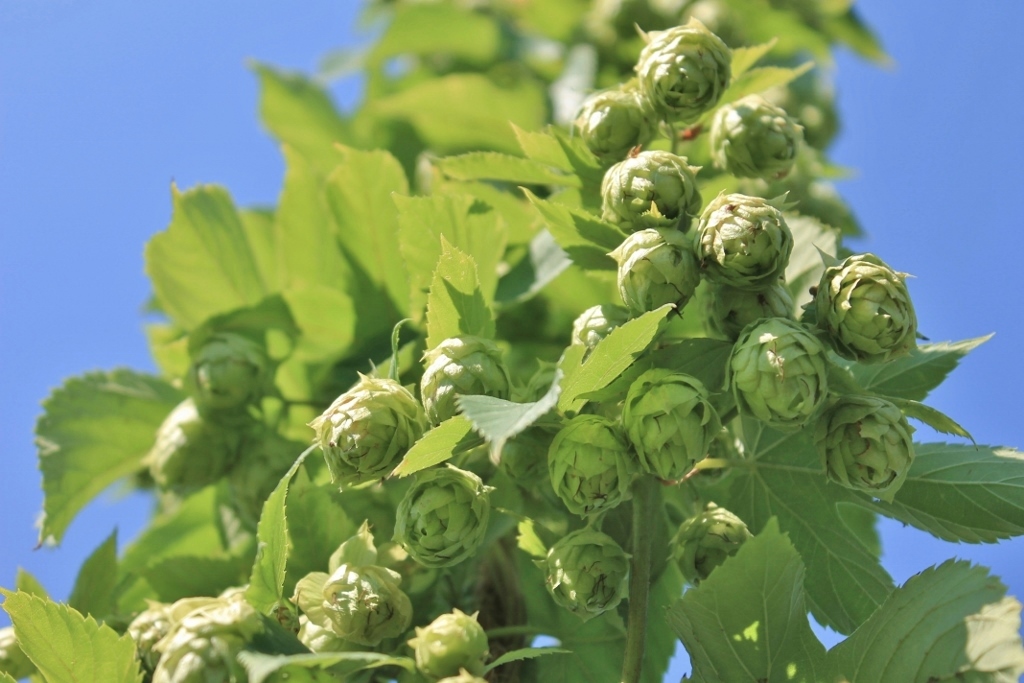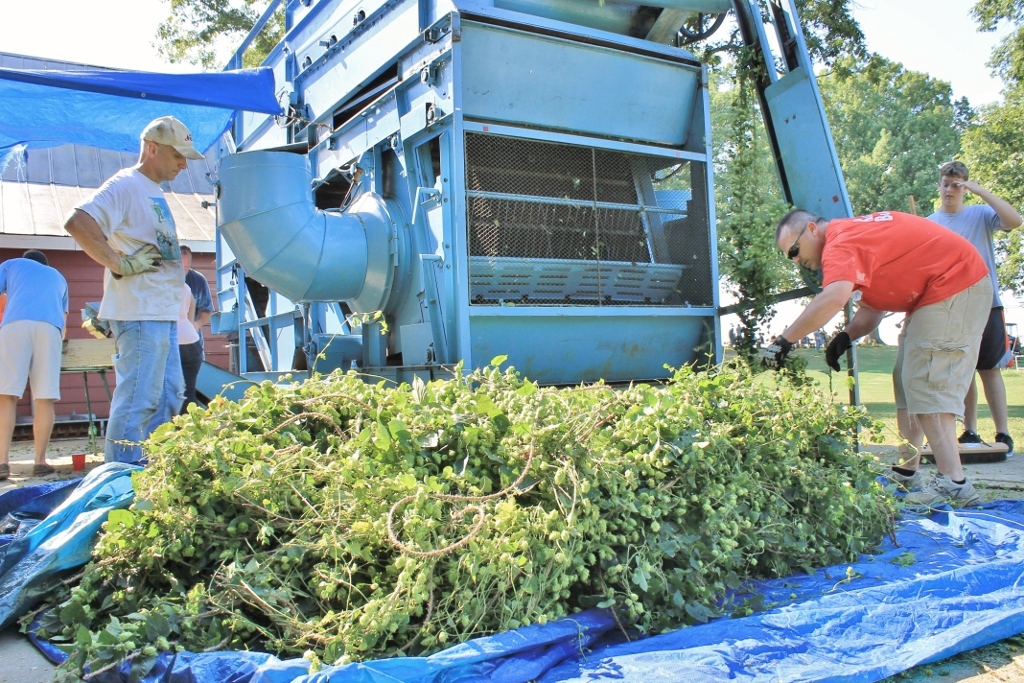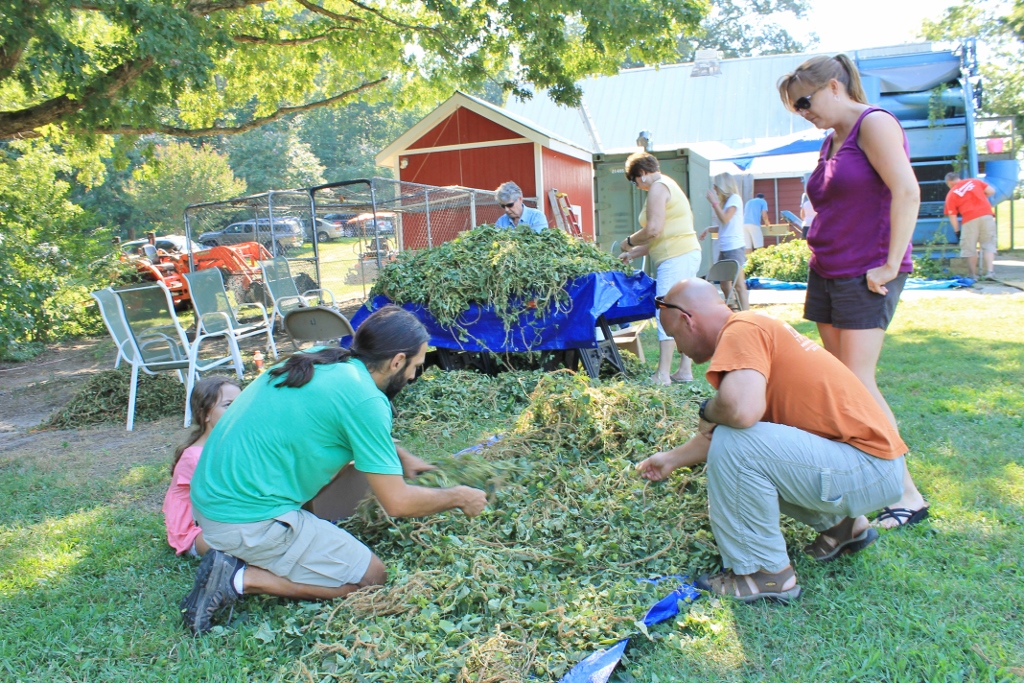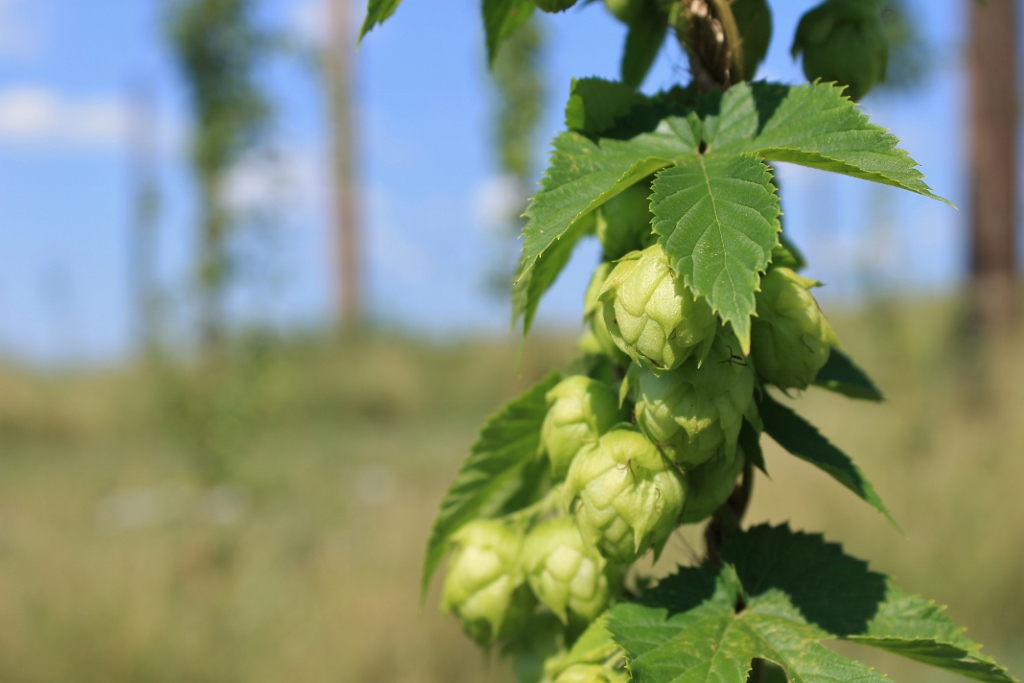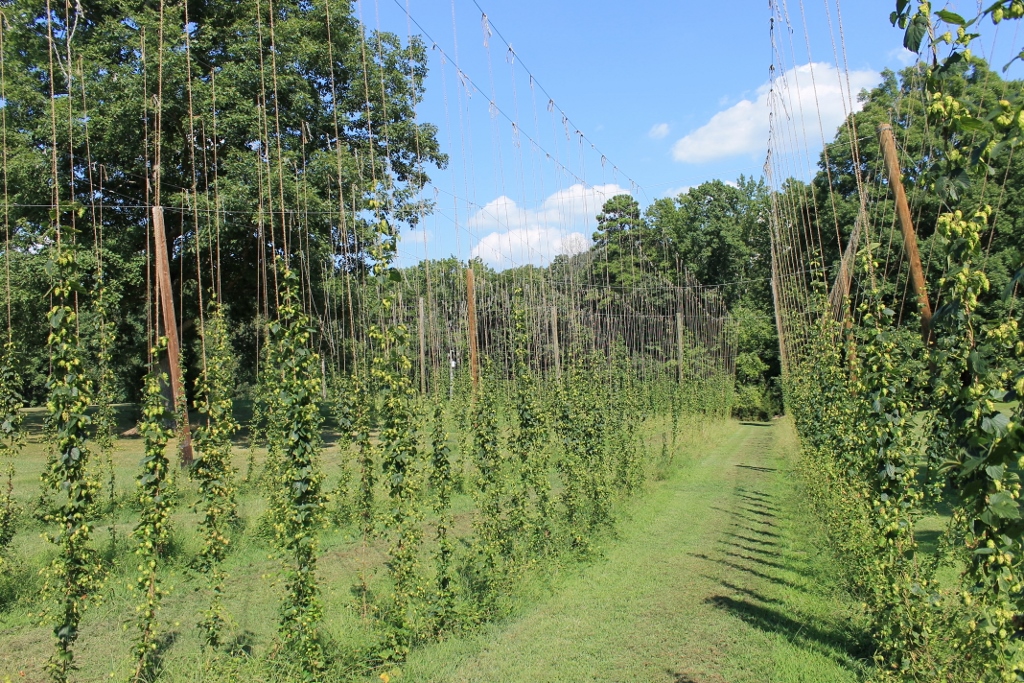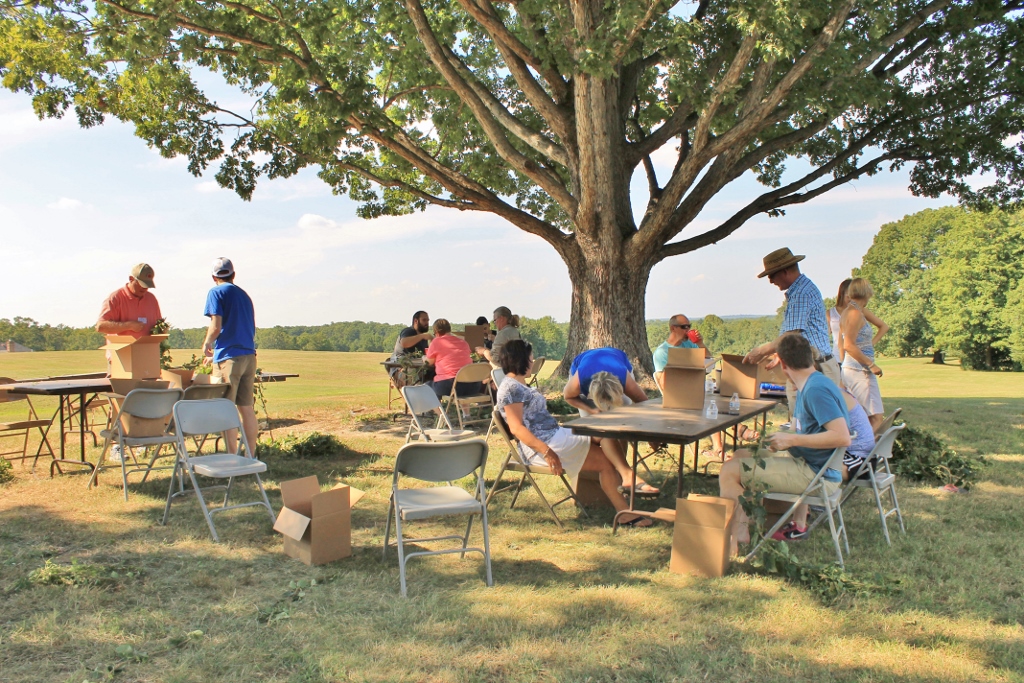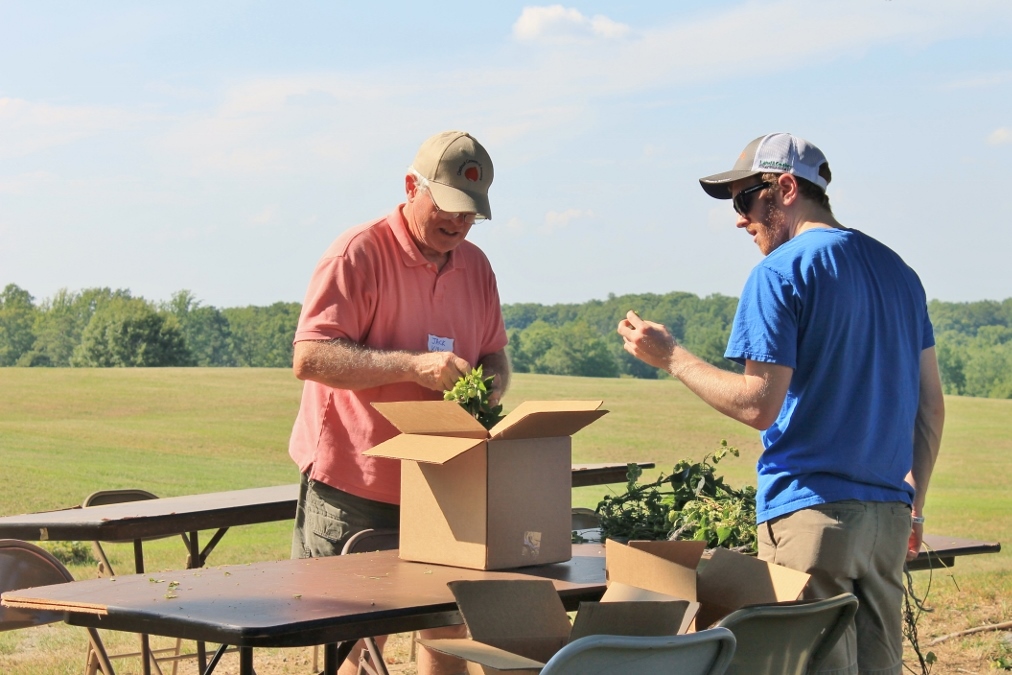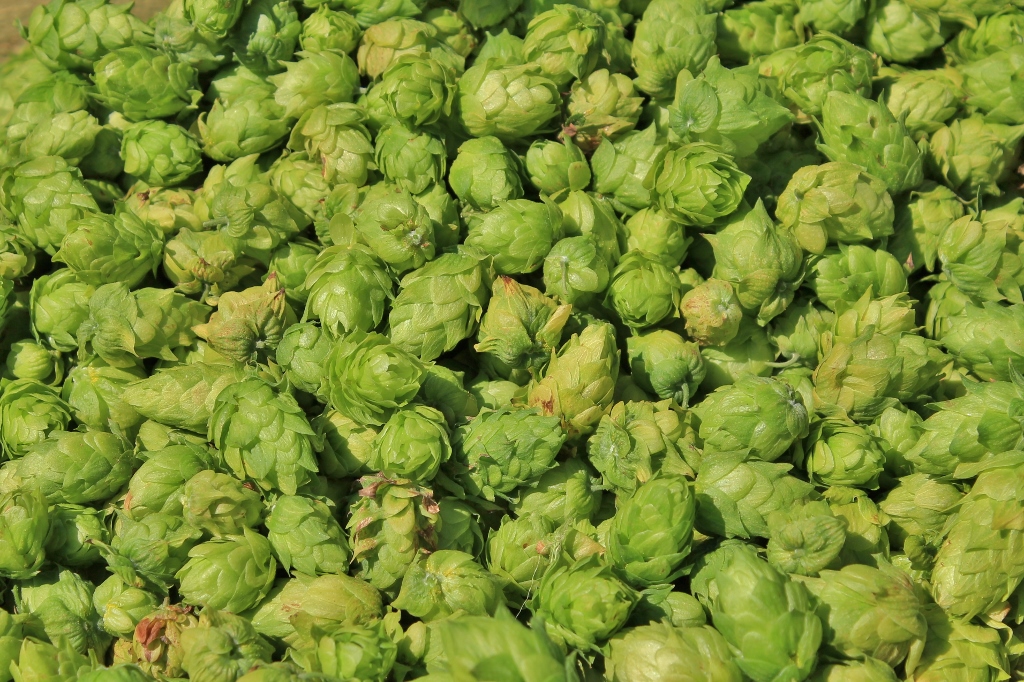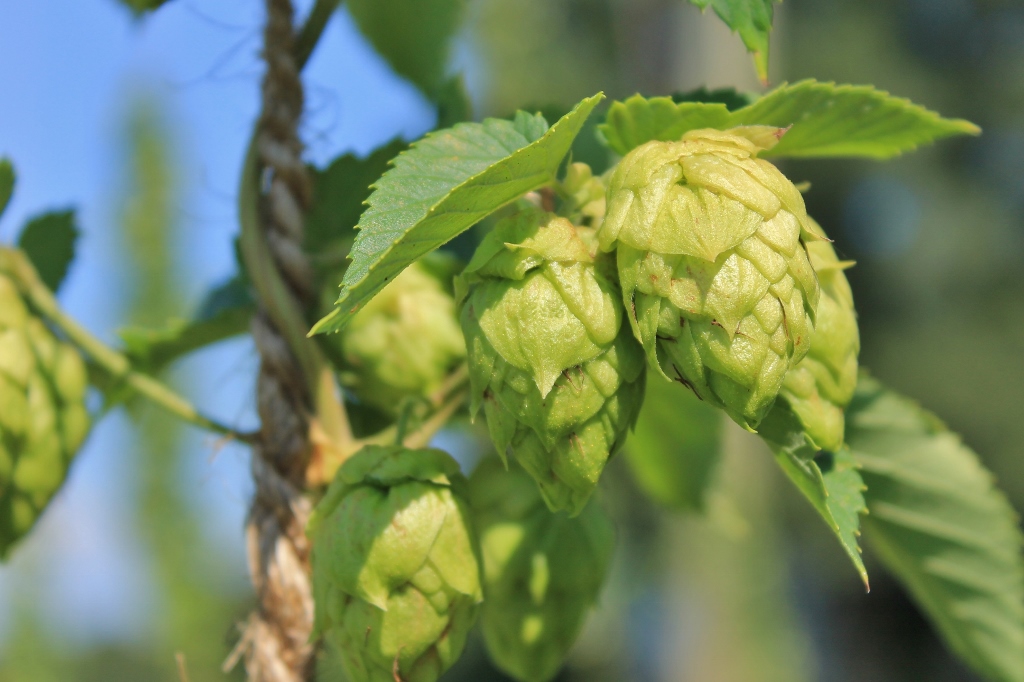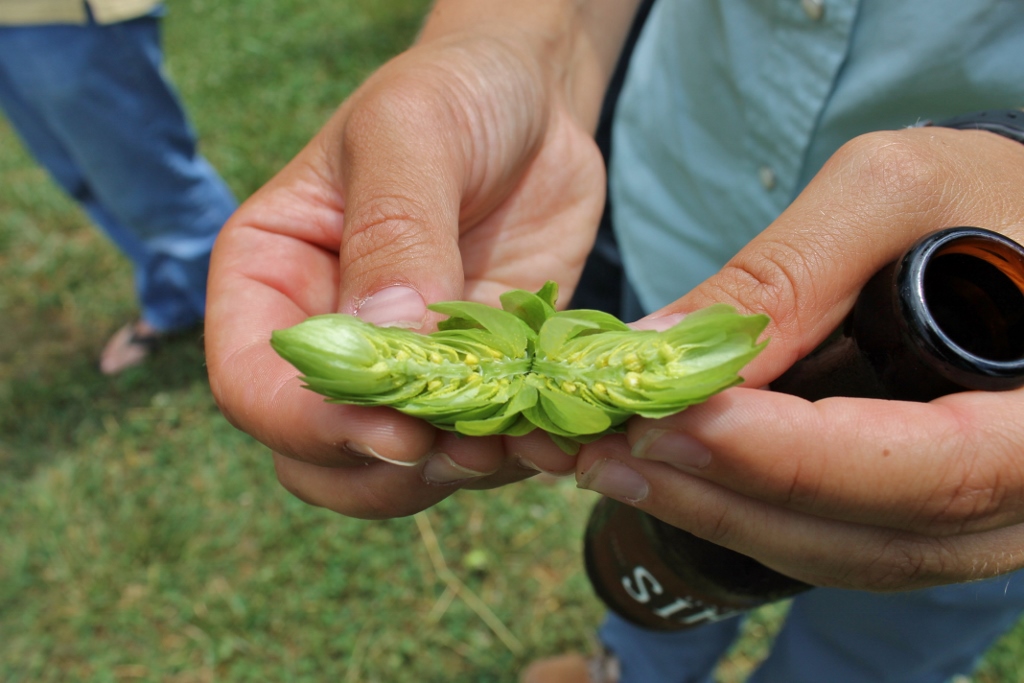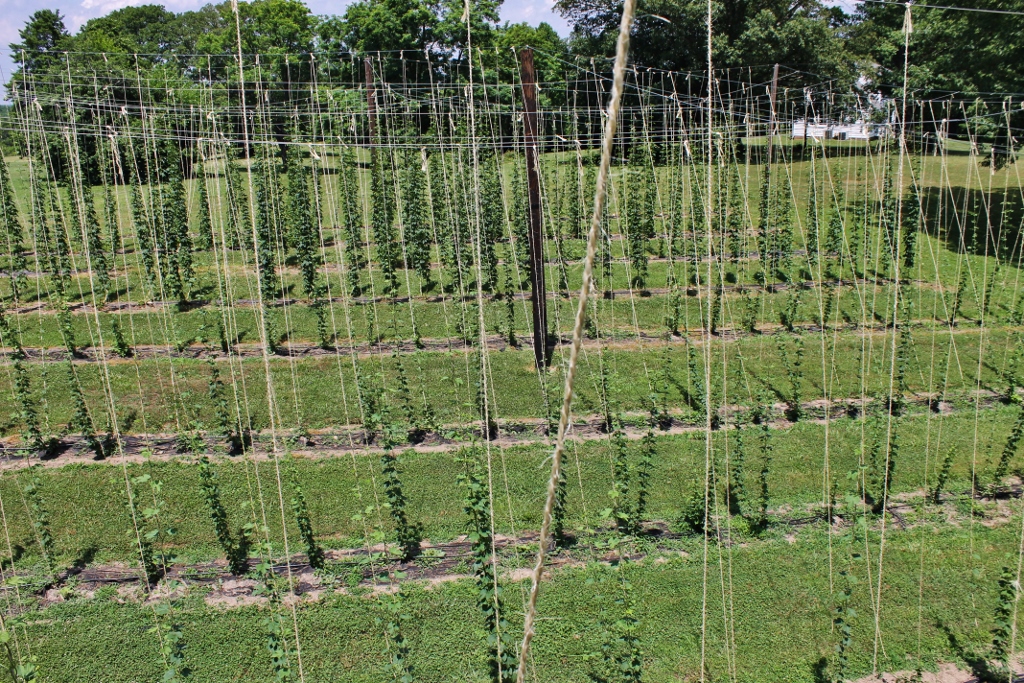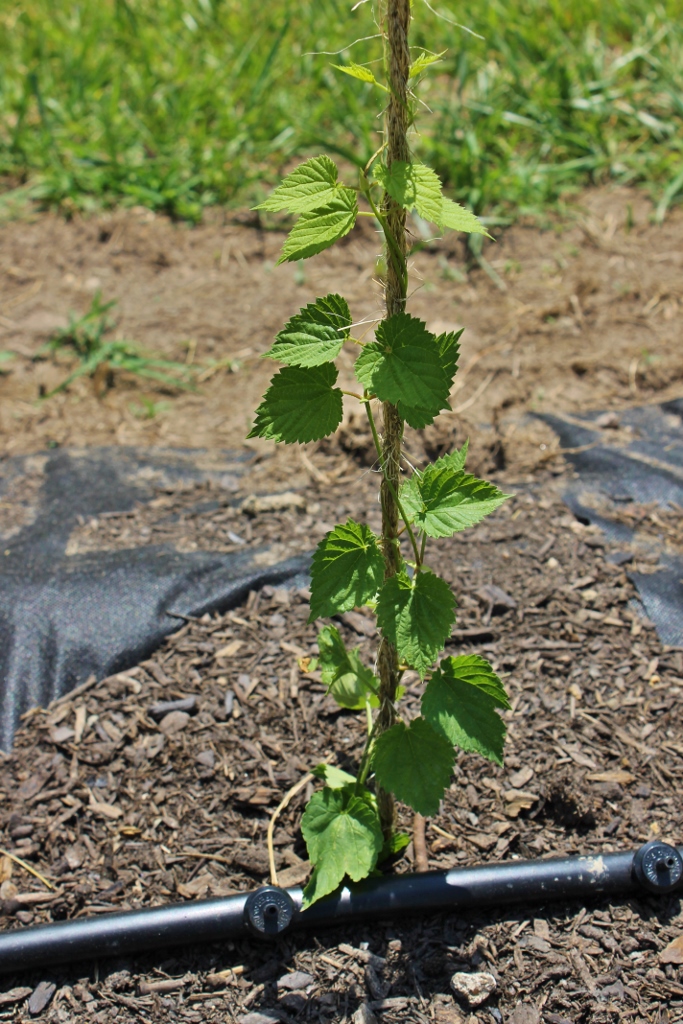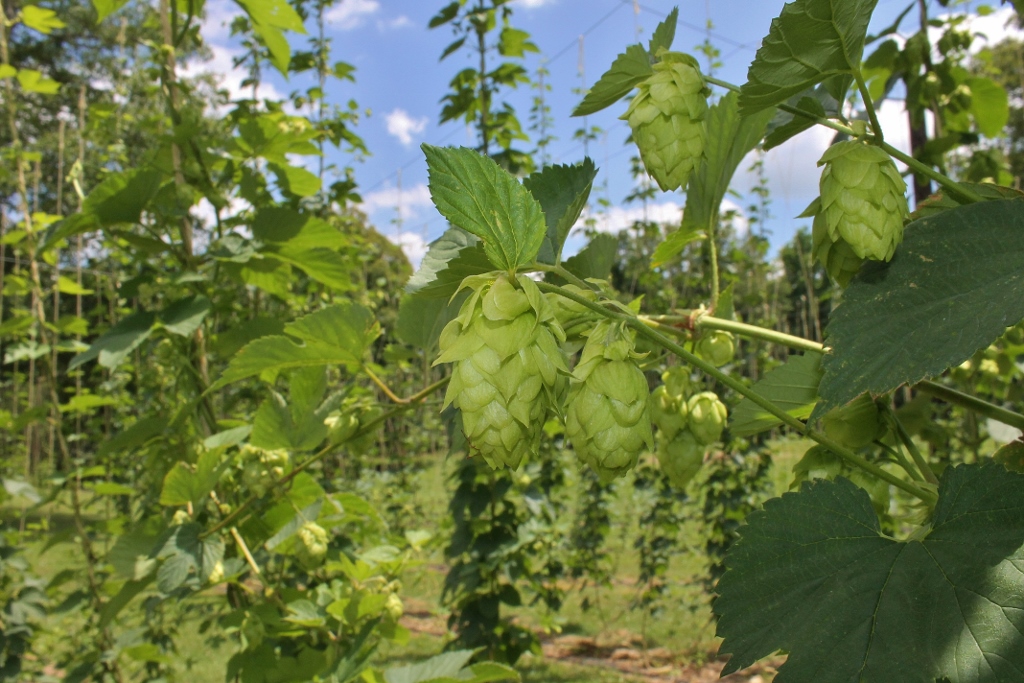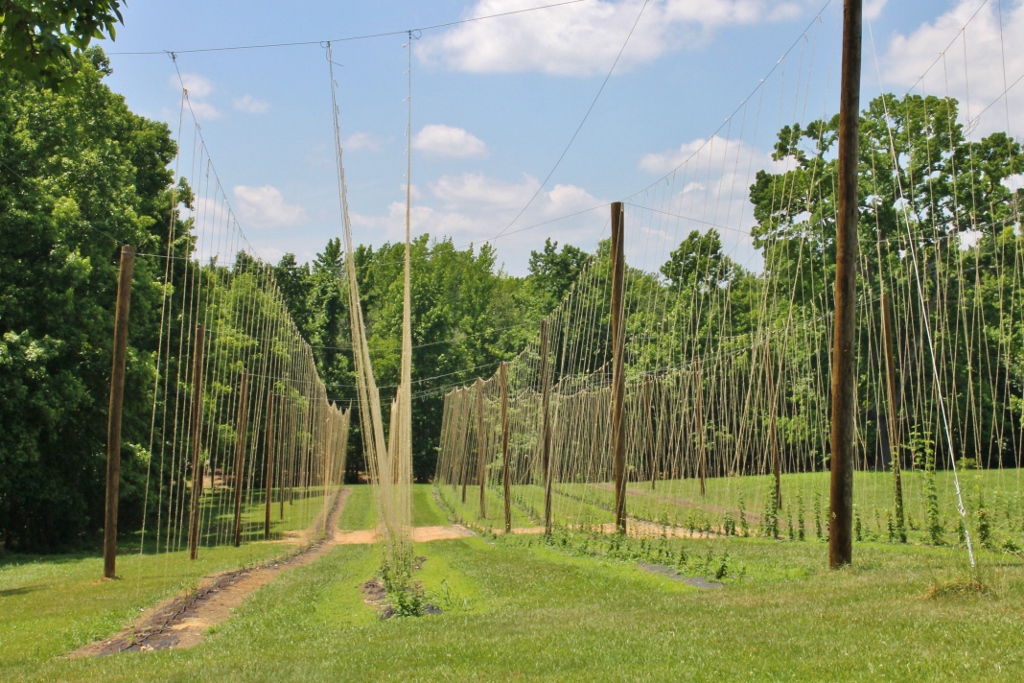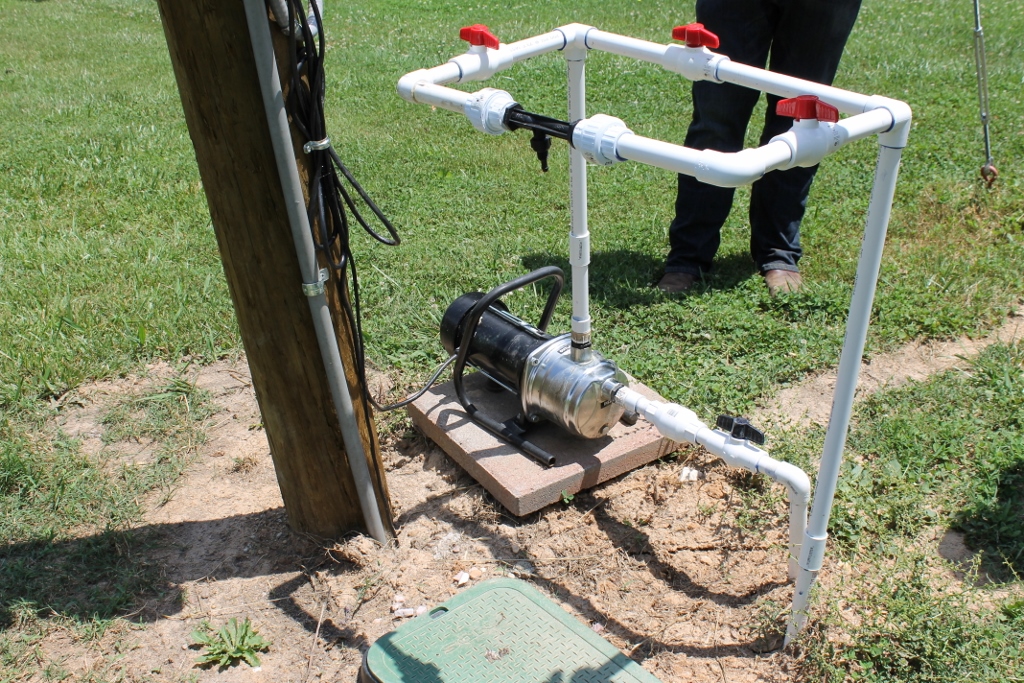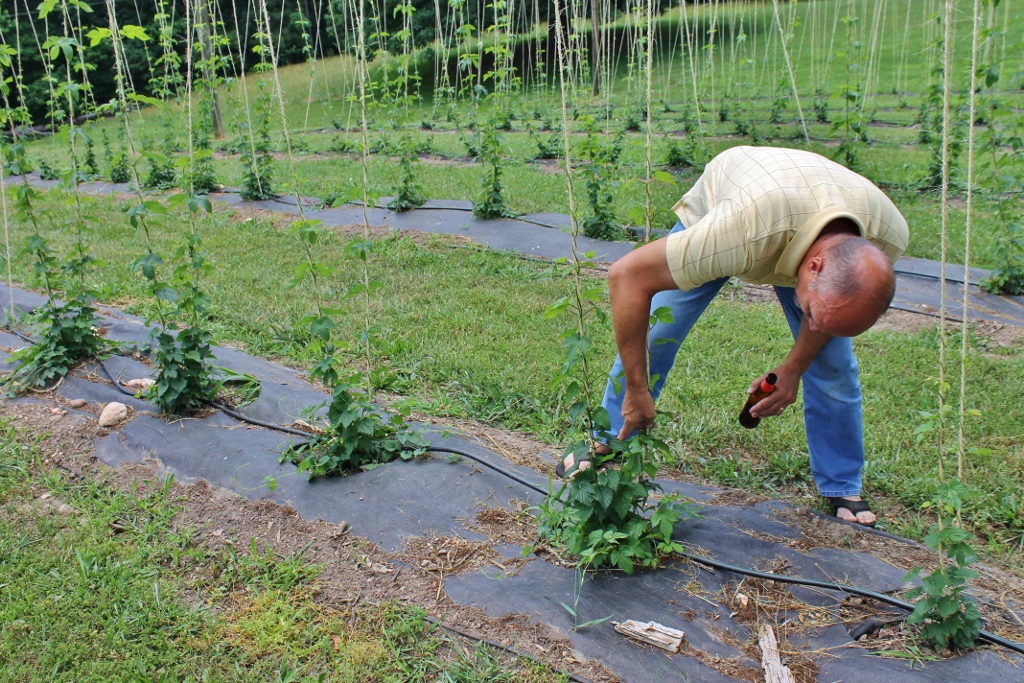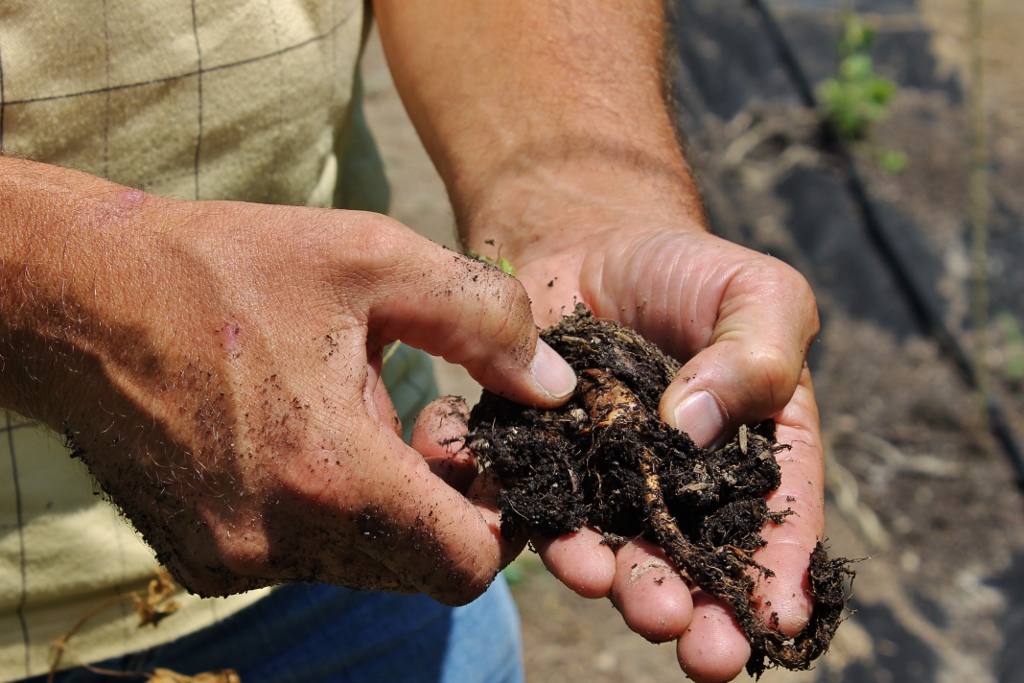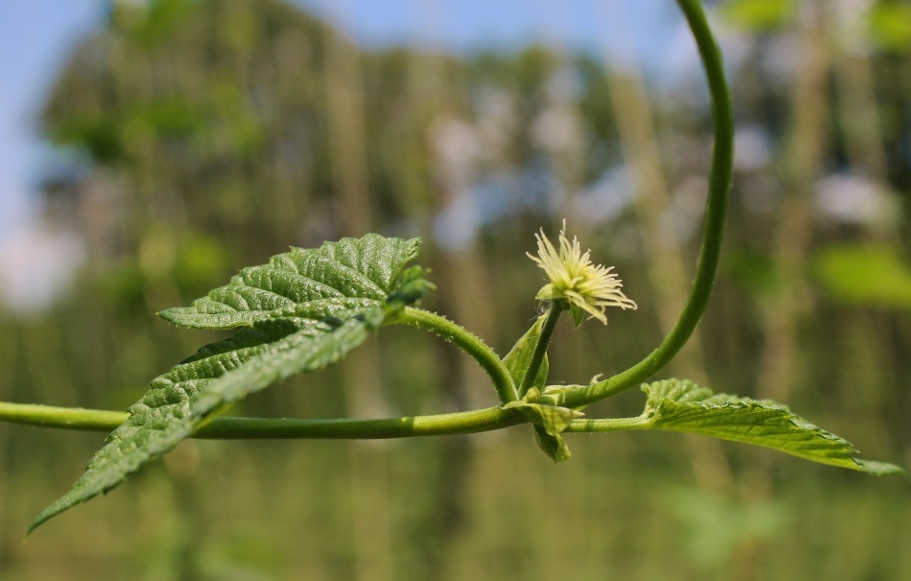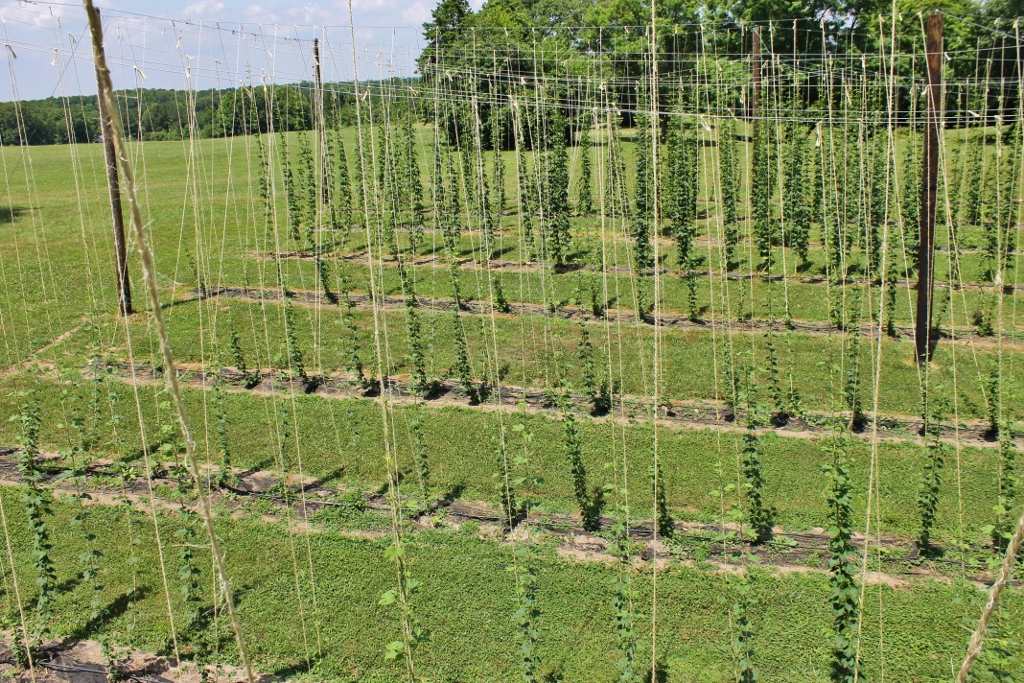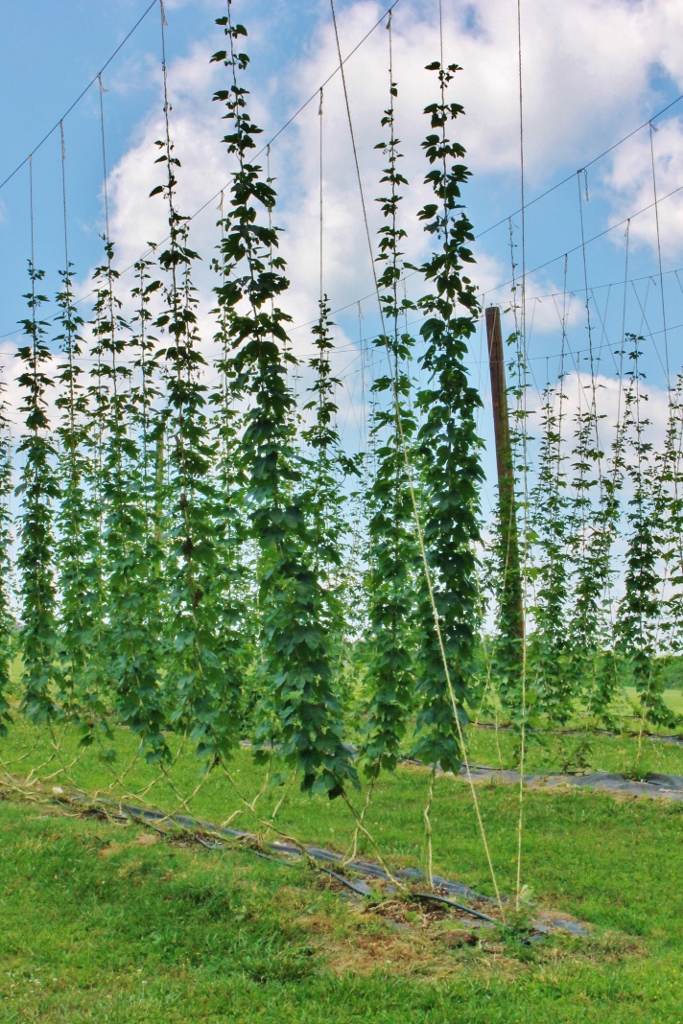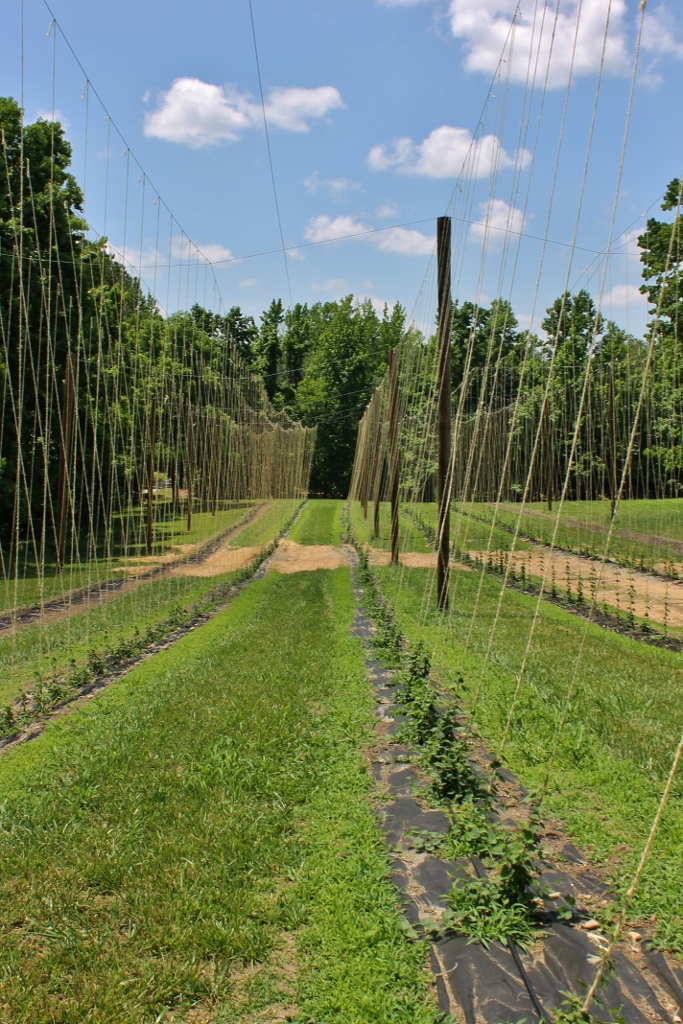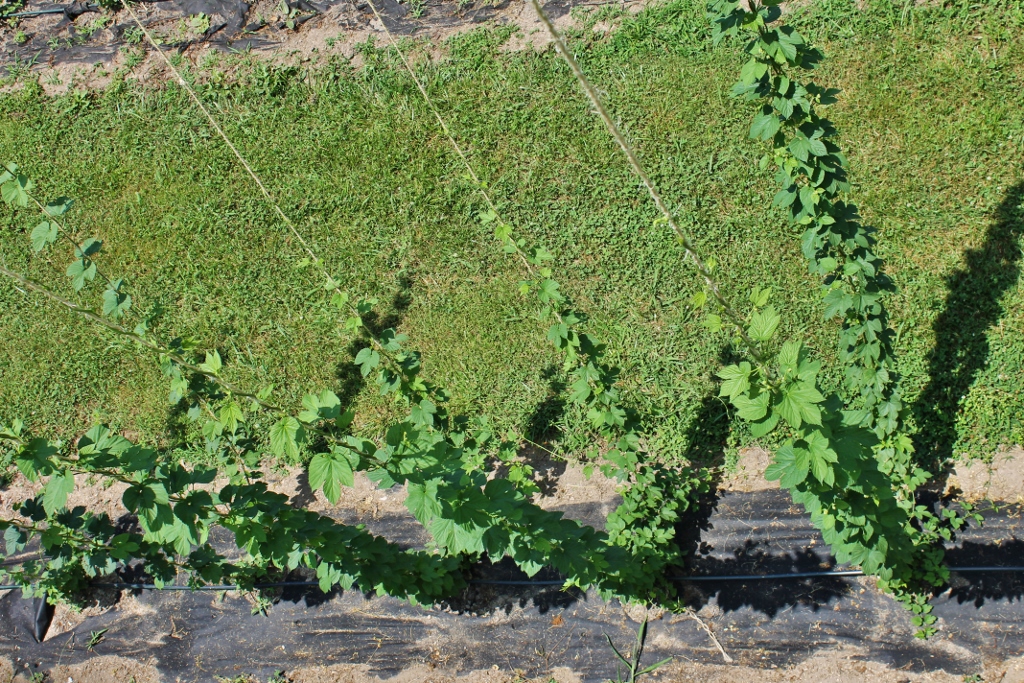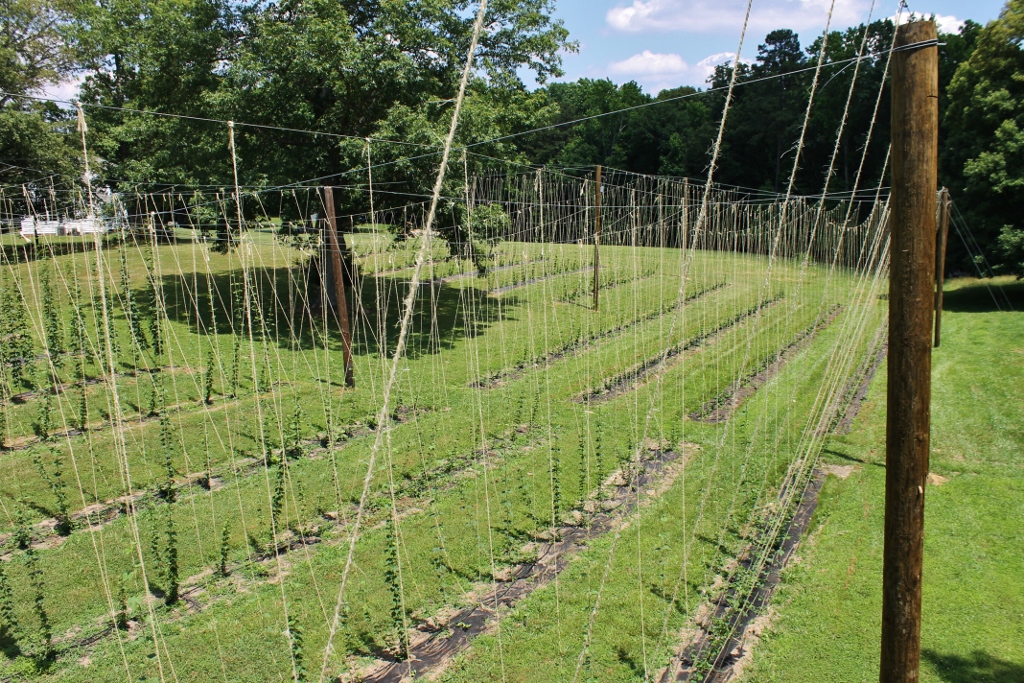Huguenot Hops in Chesterfield County is run by business partners Devon Kistler and Kurt Stanfield. We wrote about them in 2013 and 2014. Click on those stories to learn more about how this farm got its start and how it is managed. This month’s story follows the business into its third year. We visited with Devon on a hot, sunny day in August to catch up on the farm’s progress and watch as family and friends helped harvest the crop.
Huguenot Hops has become one of the largest hop yards in the region. Devon and Kurt are leading the charge to improve industry infrastructure including mechanized harvest and post-harvest processing, all while cultivating their passion for growing great hops and building valuable relationships with brewers, growers, and supporters.
How is the 2015 season going?
It’s been a tough season with all the rain and with our expansion. We added 1,200 new plants, 1.25 acres, this year and we’re still learning how to better mechanize some of the processes we did by hand last year.
What varieties did you grow this year?
Chinook, Nugget, Zeus, Crystal, Cascade and trials of three new varieties.
Besides the big expansion, did you try anything new this season?
We are doing lots of new things this year. We installed a mechanical harvester and commercial size oast. We also purchased a packager that will vacuum seal and nitrogen flush the mylar bags of pelletized hops.
Click on the video to see Huguenot’s new harvester in action during an August 16th picking day.
After three years in this business, what is the biggest challenge that you have encountered along the way?
Learning how to scale up this crop. At one acre it can be managed by hand, but beyond that you need machines, farming implements, and a lot more time.
What’s your favorite variety to grow, and why?
Cascade is easy and very reliable, but we love the flavor and aroma from the Zeus, it’s our favorite. However, Japanese beetles prefer the Zeus and they were the first to get downy mildew.
What are your thoughts on using social media as a marketing tool for hops?
Social media is important to get craft beer enthusiasts aware of local hops production, and it’s also a way to get volunteer help. But marketing is a grower-to-brewer relationship. Brewers can buy hops cheaper, but that’s not what this is all about.
Do you have any successes you’d like to share from this season?
Just surviving the expansion will be a success.
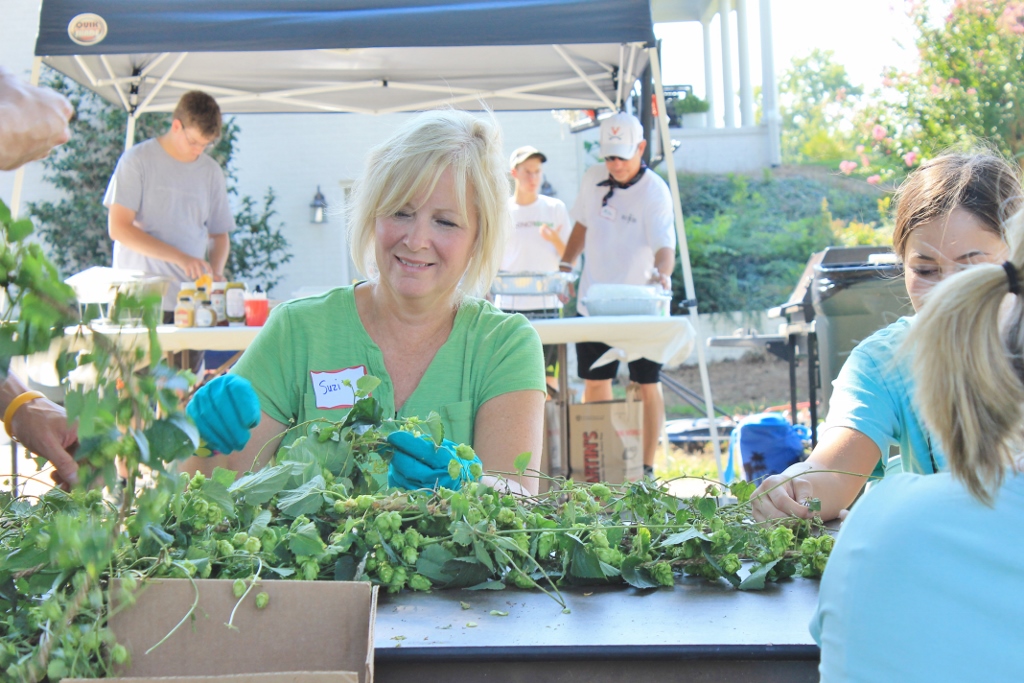
Above: Hop bines are cut down from the trellis in the field and fed into the harvester. Helpers sort through the bines and pick cones.
The industry has already changed significantly since 2014. What is your outlook on your grower organization, Old Dominion Hops Cooperative, and the Virginia industry as a whole?
The Co-Op has grown from about fifty members last year to over one hundred and the interest is growing even more. I get two or three emails and calls each week about growing hops. The exciting part is that we now have two facilities in the state that can process hops and allow brewers to use local Virginia hops in flagship beers.
Do you have any advice for others who are interested in growing hops?
Help other farmers with planting, stringing and harvesting hops before you plant your own. Start small, less than half an acre, and know the costs as well as the market before you begin. Work with the local extension agent to help with soil samples and identification of pests and mildew. Join the Co-Op!
Additional Resources for Readers
Virginia Cooperative Extension’s Hops Page

